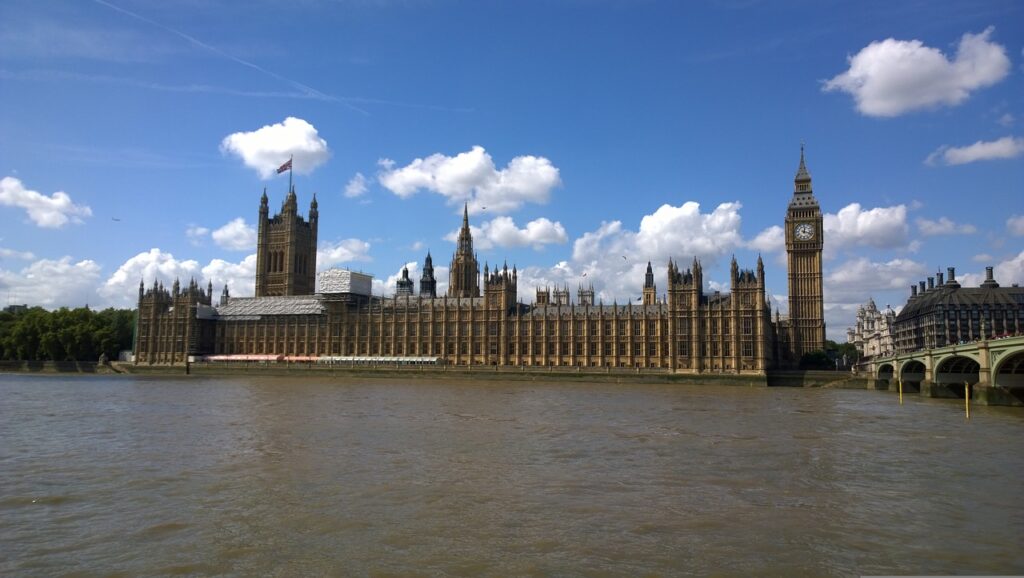The revelation that Kwazi Kwarteng committed Britain to a programme of unfunded tax cuts and unfunded borrowing without even discussing the abolition of the 45% tax rate for highest earners with any cabinet colleague except Liz Truss had many Irish people scratching their heads.
Ireland has a written constitution which radically differs from the non-constitutional agglomeration of conventions that some in the UK describe as “the British constitution”.
For one thing, the British cabinet system of government has been permitted to mutate and decay to the extent that Lord Hailsham described the office of Prime Minister as an “elective dictatorship”.
In theory, the British cabinet is still a sub-committee of the entire Privy Council, a body including all present and former cabinet members, together with a select set of persons including, by convention, the leaders of the opposition parties at Westminster. The entire Privy Council was once the monarch’s executive organ of government. But from the 17th century onwards, a system of ministers appointed by the monarch developed on the basis that a leading politician was invited by the monarch to form an administration which would command the confidence of the House of Commons.
In Ireland by contrast, the “head of the Government or Prime Minister” or Taoiseach is appointed by the President on the nomination of a majority in the Dáil. Members of the government are also appointed by the President on the Taoiseach’s nomination but only with the prior approval of the Dáil. There is no question of a Taoiseach being chosen by the President or being invited to form a government, or of members of government being appointed without the approval of the Dáil.
Even when Ireland was a Free State, its constitution was exceptional among self-governing dominions in that the head of the government was nominated by the Dáil for appointment, rather than invited or chosen for appointment by the Governor General.
While a Taoiseach and a British prime minister can at any time advise the removal from office of any minister, unlike in Britain no replacement minister may be appointed without the prior approval of the Dáil.
Most importantly, the Irish constitution provides that the government must “meet and act as a collective authority” and be “collectively responsible” for the departments of state overseen by its members. The Government must also collectively prepare annual budgets and collectively present them to the Dáil for consideration. In Ireland the Government as a whole is collectively “responsible to Dail Éireann”.
There is simply no possibility that the Dáil could approve an abolition of the top tax rate or authorise a splurge of unfunded borrowing without a prior decision to that effect by the members of the Government, still less without discussion as happened in the UK this week.
As attorney general and as minister, I was constantly reminded of the extent to which the British system of government had been hollowed out and converted into a quasi-presidential system in which collective cabinet authority had completely atrophied. I remember surprising a UK attorney general by telling him that Irish cabinet meetings each lasted a good number of hours, and individual memoranda and decisions were tabled, discussed as necessary, and collectively approved or rejected.
Cabinet meetings in Downing St, by contrast, can last 30 minutes and much UK business is done on the basis of sub-committee meetings, circulated papers and the ratification of decisions made by non-ministerial kitchen cabinet meetings of advisors. I had the impression that many UK ministers found out what government was doing after the fact and after the press was briefed by “Downing St sources”.
Coalition governments necessarily require a less presidential style of administration – as in “Single Party Government? No Thanks!”. The sad fact is that the UK has utterly degraded its internal systems of governmental checks and balances.
All this has been developing in the UK for the last half century. Boris Johnson’s ill-fated spell in office marked the high point of prime ministerial autocracy. The antics of Dominic Cummings were the antithesis of collective cabinet accountability. While the brilliant TV series, The Thick of It, may on occasion have seemed more parody than reality, the all-powerful character of Malcolm Tucker, berating and removing ministers with equal aggression, had more than a chilling element of truth about it.
Would an Irish government behave in the dishonourable way that Johnson, Lord Frost, and their minion, Steve Baker, dealt with the Ireland and the EU over the Northern Ireland Protocol? There would have been cabinet discussion here at least. They would have been challenged.
The departure of Johnson, Truss’s embarrassments, Baker’s belated but welcome apology and Kwarteng’s humiliating u-turn may just mark the re-establishment in British politics of the norms that government must be collective, actions must have consequences, and that facts always catch up with fantasists.
A written constitution has its merits.

